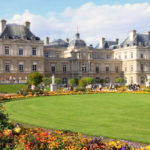The five Presidents of Kenya
Officially known as the Republic of Kenya, named after Mount Kenya, is located in East Africa. It is a presidential representative democratic republic, meaning that the public elect their leaders and the president is the head of state and government. In Kenya the president is elected after every five years and can serve a maximum of two terms as per the current constitution. The president is given the title his/her Excellency Honorable (Name of the president) C.G.H., President of the Republic of Kenya and Commander In Chief of the Defense Forces.
Before colonization Kenya was sub-divided into various ethnic groups who were governed by local chiefs or clan elders. Upon the arrival of the Imperial British East Africa Company in 1888, all of this changed as Kenya became a colony of British under its monarchy.
In 1952, the Mau Mau rebellion, a militant native movement, aroused and launched a violent campaign against the colonial authorities and white settlers. This uprising convinced the British to set in motion the transition of Kenya gaining its independence. On 12th December 1963, Kenya became independent and these are her heads of state.
1. Queen of Kenya, Elizabeth II
The Queen of Kenya and Her other Realms and Territories, Head of the Commonwealth, the official title of Queen Elizabeth II was the head of state of Kenya from 1963 to 1964. Her duties as Kenyan head of state were delegated to the Governor-General of Kenya.
Fun fact, Queen Elizabeth II actually accession to the throne was while she was in Kenya in 1952 upon the death of her father, George VI.
The Kenya Independence Act of 1963 changed the Colony and Protectorate of Kenya into an independent state with Elizabeth II as its queen, Jomo Kenyatta as the Prime Minister and Malcolm MacDonald as the Governor-General. In 1964, Kenya became a republic under the 1964 constitutional amendment and the Monarch, Prime Minister and Governor-General were abolished and replaced with an executive president.
2. Mzee Jomo Kenyatta
Mzee Jomo Kenyatta is officially considered as Kenya’s first president. He took over from Queen Elizabeth II as head of state on 12th December 1964, when Kenya became a Republic, under the Kenya Africa National Union political party. He elected Jaramogi Oginga Odinga as his Deputy.
Kenyatta was born as Kamau Wa Muigai, son of Muigai and Wambui, in Gatundu around 1984. In August 1914, he was baptized as Johnstone Kamau. He later adopted the name Jomo Kenyatta. Jomo meaning burning spear in Kikuyu and Kenyatta a Maasai word referring to the beaded belt he often wore.
He was Kenya’s head of state from 1964 to 22nd August 1978 when he died in his sleep. His then Vice President, Daniel Arap Moi, succeeded him as per the then Kenya’s constitution. Jomo Kenyatta is remembered for many things but most notable is his 1952 arrest in association with the Mau Mau Movement and his 1962 involvement in the London Conference to negotiate the constitutional terms of Kenya’s Independence.
3. Daniel Arap Moi
Mzee Moi served Jomo Kenyatta as vice president from 5th January 1967 to 22nd August 1978 when he became acting president upon the sudden death of Mzee Jomo Kenyatta. Just as his rise to the presidency was dramatic, his time in power was more dramatic having a bitter-sweet relationship with Kenyans.
On 14th October 1978, Moi was elected president of Kenya unopposed. In the beginning, Moi was popular, supported and admired by many Kenyans. Proof is the many songs composed in praise of his “Nyayo”, footprint in English, leadership style. Later on, his popularity diminished as Kenyans viewed his as a dictator. Barred from running 2002 presidential election he retired and preferred Uhuru Kenyatta, Jomo Kenyatta’s son, as his successor.
Unfortunately, Uhuru did not succeed him instead his opponent, Mwai Kibaki, did. After his retirement Moi disappeared from the political limelight only popping up once in a while. His influence was still present as many politicians sought his assistance when it came to politics. Sadly, Moi died on 4th February 2020 at the age of 95 and was given a state funeral.
4. Emilio Mwai Kibaki
During his first term in office, Kenya experienced an economic boom that resulted in the country being ranked as the most optimistic nation in the world. Mwai Kibaki served as Moi’s vice president from 14th October 1978 to 24th March 1988 and was declared president of Kenya on 30th December 2002 after Moi’s retirement. Kibaki remained president for two terms before retiring on 9th April 2013.
His second term in office was kicked off by the Post-Election violence that resulted in the death of around 1,300 and displacement of more than 600,000 Kenyans. Fortunately, Kibaki was able to recover from this, and he formed a coalition government with his opponent Raila Odinga Oginga, commonly referred to as “nusu mkate” meaning ‘’half bread’’ by Kenyans.
Despite the major setback during his second term Kibaki still holds a dear place in the hearts of many Kenyans. He is the president who introduced free primary education, 2010 constitutional referendum that addressed Kenya’s governance and institutional challenges, infrastructural development and relaxed intellectual leadership style full of witty entertaining speeches.
5. Uhuru Muigai Kenyatta
He is the current president of Kenyan and the son to the first president of Kenya, Mzee Jomo Kenyatta. Uhuru was elected in office on 9th April 2019 under The National Alliance (TNA), which was part of the Jubilee Alliance with his running mate, William Ruto’s United Republic Party (URP). He was born in 1961 and is Kenya’s youngest serving president.
Uhuru is demystifying the presidency legacy with his fun, fresh and suave leadership style. Many Kenyans have described him as down to earth and an approachable president. Since taking over, the country has seen an economic growth average of 5% every year and foreign investments have also increased.
Unfortunately, all has not been smooth sailing for the digital president. In 2013, he was facing an indictment by the Internal Criminal Court (ICC) on charges of crime against humanity. The charges were eventually dropped due to lack of sufficient evidence. His 2017 re-election was annulled by the Supreme Court. However, he was declared president after re-election that he won.

 English
English













